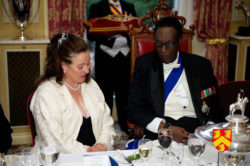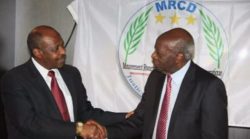Why western countries should stop deportations and extraditions to Rwanda
The human rights situation in Rwanda offers no guarantee of security to Rwandan political refugees and to all those who dare to openly criticise the system of governance of the Rwandan Patriotic Front (RPF), the party in power since 1994. Any dissenting voice is treated as an enemy of Rwanda. In its February 2021 report[1], an American NGO, Freedom House, cites Rwanda alongside countries such as China, Russia, Iran and Saudi Arabia where repression of opponents is a serious concern.
The Rwandan authorities exercise undivided power, including the banning of genuine opposition political parties, repression of opponents and human rights activists, assassinations, physical and mental torture, disappearances, control of human rights organisations and the media, and harassment of those calling for political openness and democratic governance[2].
The repressive activities of the Rwandan authorities are not limited to Rwanda. They are also manifested abroad where opponents of the Rwandan regime are targeted. These repressive activities are part of a carefully prepared and coordinated programme. Considered as negative forces, Rwandan opposition movements abroad are scrutinised by a well-trained spy service financed by the Rwandan intelligence services.
In order to identify people in the diaspora opposed to the Rwandan regime, the government has put in place multiple spying systems. Rwandans abroad face computer threats, spyware attacks, domestic intimidation and harassment, mobility controls, physical intimidation, assaults, detentions and killings.
The Rwandan government has created a fifth column, the ‘diaspora’, made up of Rwandans outside the country who swear loyalty to the RPF party. This column animates the supporters from outside who get involved in espionage activities and go to Rwanda to follow political education and espionage courses. They also undergo military training.
The Rwandan political system revolves around one political party, the Rwandan Patriotic Front (RPF), which has held the reins of the country since it took power by force in 1994. The RPF controls the judiciary, which greatly hinders the implementation of the right to a fair trial given the politicisation of the genocide. Indeed, officials often use the judicial system to punish and restrict the activities of people considered to be opposed to the government and the RPF. These people are often prosecuted (for divisionism and genocide ideology, or for offences against the established power or the President of the Republic and inciting the uprising or unrest of the population[3]) and detained for long periods without being charged. Laws against divisionism, genocide ideology and genocide denial are widely used to silence political dissent and to suppress investigative journalism[4].
Livre_Noir_International.Mars2022-A4-EN
The regime continues to tout its efforts to modernise and upgrade the judiciary by displaying laudable principles and legal reforms to address international criticism. However, as long as there are wide gaps between the law and the actual conduct of judicial proceedings, these standards will remain a façade and justice will remain marred by irregularities and interference of all kinds. This is not only detrimental to the rights of (at the expense of) individuals prosecuted but also (in general) undermines genuine national reconciliation through true justice.
Rwanda’s national prisons are overcrowded, food is inadequate, sanitary conditions are appalling, medical treatment is inadequate, visiting rights of lawyers are extremely limited, prisoners are threatened by guards and co-detainees, some remain in prison for years without being tried, others disappear from prisons and there is no investigation to determine the circumstances of these disappearances. A prison in Rwanda is an excessively dangerous place.
The evidence from eyewitnesses, the International Red Cross and human rights organisations is overwhelming. On the other hand, the Dutch government and judiciary repeatedly do not see it that way. At the instigation of the Dutch immigration service IND (Immigratie en Naturalisatiedienst)[5], the government sends suspected criminals back to Rwanda, to a very unreliable and untransparent prison system, without any guarantee of fair and impartial justice.
The IND is biased, partial, unreliable and botches its work. The Dutch procedure in which people are accused of genocide (1F[6] ) violates human rights.
Anyone accused by the IND of having participated in the Rwandan genocide is caught in quicksand that slowly but surely swallows you up. Administrative law and the IND’s working methods are the main culprits. Proving innocence through administrative law[7] is virtually impossible.
Administrative law, designed to defend citizens against government decisions, offers few possibilities for adequate defence in practice. Dozens of Rwandan families living in the Netherlands have been victims of this. Their residence permits were withdrawn, some even lost their Dutch passports and nationality. They were no longer allowed to work and were not entitled to social benefits and health insurance. These families have been in a permanent state of poverty, fear and uncertainty for over ten years.
After a long process, a judge finally decides the fate of the person accused of genocide. Can she be deported to Rwanda?
For many, this is a frightening option, as they are politically active in the opposition. The risk of being arrested in Rwanda, of being subjected to enforced disappearance, unfair trial, illegal detention, torture or even death, is high.
The IND’s accusations are riddled with errors. There is no knowledge of the local language or culture. Files are built up from general elements, supplemented by few personal details. The IND often requests further investigation in the same country, where it is well aware that the regime can only seek or pay for prosecution witnesses. The result is an official report on an individual: IAB (Individueel Ambtsbericht), the quality of which even the officials say internally leaves something to be desired. It is quite shocking to make light of a situation where someone is accused of the worst crime of genocide when no one is sure what happened, where it happened and when it happened.
The IND almost never admits that it might go (wrong and almost never includes in its decision arguments in defence of the suspect. The IND literally says: « For the withdrawal of Dutch citizenship, it is sufficient that there are serious suspicions« . This leaves too much room for arbitrariness, because for such serious suspicions to be acceptable, they must be based on verifiable facts and not on the information of a prosecution witness recruited by the Rwandan prosecutor. But this is contrary to the General Administrative Law (Awb[8] ), which stipulates that an administrative organisation, such as the IND, must perform its tasks without prejudice.
In April 2021, Dutch lawyers presented a black book revealing the inhumane and degrading treatment of asylum seekers, a situation that does not give credit to a democratic country like the Netherlands. It contains fifty stories of how the IND treated their clients in an incredibly cruel and inhumane manner[9]. The black book describes the IND’s activities as follows: « …excessive formalism, dismissing people as fraudsters, an IND that rigidly adheres to rules and in doing so completely loses sight of the human dimension… »
Almost all Dutch judges believe that the accused can be sent back to Rwanda. Similarly, most Dutch politicians believe that people can be deported or extradited to Rwanda. The reason seems to be that, since the Netherlands itself helped build the judicial system, it has to send them back to prove that the system works. To say otherwise would be to undermine years of support worth tens of millions of euros.
But what the Dutch government does not want to admit is that by providing financial support to Rwanda, the Netherlands is helping a dictatorial system where human rights, political space and freedom of expression do not exist.
In the meeting of 28 October 2008[10], the Netherlands through the representative of the European Union in the Great Lakes countries, Mr Roeland van de Geer, tried to get European countries to harmonise extradition policies. But many countries rejected the idea and said that extradition procedures would be assessed according to the human rights situation in Rwanda.
In accordance with their laws of universal jurisdiction, Germany and Belgium preferred to try themselves the alleged perpetrators reported on their territories.
France went even further. The Court of Cassation ruled that there was no legal provision to try the crime of genocide in 1994 at the time when the crime was committed and the legal texts were produced after July 1994.
In the Scandinavian countries, attitudes have varied:
Denmark was one of the first countries in Europe to extradite Rwandans accused of genocide. Sweden, on the contrary, did not want to send the accused to Rwanda and tried several suspects in its own country. As early as 2005, in order to investigate and possibly extradite or prosecute those suspected of involvement in major international crimes, Norway created a special prosecutor’s post and set up a unit within the National Criminal Investigation Service (NCIS). Finland has refused to extradite individuals to Rwanda because it felt it could not ensure that the trial would be conducted fairly.
The United Kingdom (UK) has refused extradition requests and has demanded guarantees for fair and impartial justice with specific and verifiable evaluation indicators[11].
Switzerland: by a decision of 1 July 2009, the Swiss government refused to extradite a former Rwandan minister to Rwanda.
[1] https://freedomhouse.org/report/transnational-repression/rwanda
[2] https://www.hrw.org/fr/world-report/2022/country-chapters/380887
https://www.youtube.com/watch?v=IN5uofccsvQ
[3] https://police.gov.rw/uploads/tx_download/Official_Gazette_no_Special_of_14.06.2012-4.pdf
https://gazettes.africa/archive/rw/2018/rw-government-gazette-dated-2018-09-27-no-special.pdf
[4] https://www.state.gov/reports/2019-country-reports-on-human-rights-practices/rwanda/
[5] Service de l’immigration et de la nationalité (Immigratie- en Nationalisatie Dienst)
[6]https://www.refugeelegalaidinformation.org/exclusion-refugee-status-under-article-1f-convention
https://www.canlii.org/en/ca/scc/doc/2013/2013scc40/2013scc40.html?resultIndex=1
https://www.canlii.org/en/ca/scc/doc/2013/2013scc40/2013scc40.pdf
https://nl.wikipedia.org/wiki/Artikel_1F_Vluchtelingenverdrag#:~:text=
Het%20bepaalde%20in%20artikel%201F,kunnen%20maken%20op%20
vluchtelingrechtelijke%20bescherming.
https://www.amnesty.org/en/wp-content/uploads/2021/05/AMR2000092012ENGLISH.pdf
[7] De grondbeginselen van de rechtsstaat zijn geschonden’ als ‘verschrikkelijk ongeluk’. Over de noodzaak van behoorlijk bestuur, Alex Brenninkmeijer, Nederlands Juristenblad, 8-01-2021, https://www.njb.nl/media/4103/c-b-b-37e-d-97a-c-c-4d-20652575d-6b-97e-05c-9_pdf.pdf.
[8] https://wetten.overheid.nl/BWBR0005537/2021-03-01, article 2.4
[9]https://www.vajn.org/wp-content/uploads/2021/04/boek-_ongehoord_-onrecht-in-het-vreemdelingenrecht.pdf
[10] Rwanda – EU – Internationaal recht – Bijeenkomst inzake uitlevering aan Rwanda en vervolging in Europa van FDLR genocide verdachten
[11]https://www.judiciary.uk/wp-content/uploads/2017/07/rwanda-v-nteziryayo-and-others-judgment-20170728.pdf
Vous pourriez être intéressé(e)

Tanzanie : le coup raté contre Samia Suluhu Hassan et l’échec du projet d’« Empire Hima-Tutsi »
Emmanuel Neretse - 8 novembre 2025Une élection qui déjoue les plans d’un empire régional L’élection présidentielle du 29 octobre 2025 en Tanzanie a marqué un tournant majeur dans la politique de…
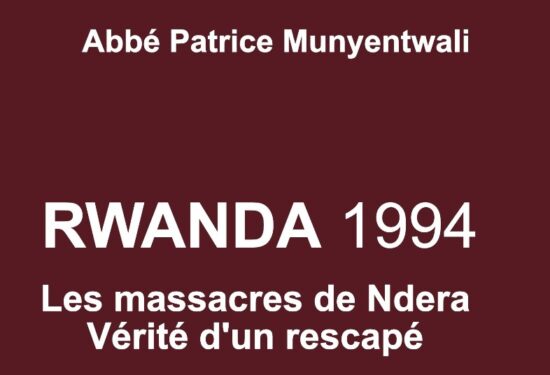
Vient de paraître : Rwanda 1994. Les massacres de Ndera – Vérité d’un rescapé
Gaspard Musabyimana - 3 novembre 2025Rwanda 1994. Les massacres de Ndera – Vérité d’un rescapé Abbé Patrice Munyentwali – Éditions Scribe Et si l’un des témoins directs du drame rwandais de 1994…
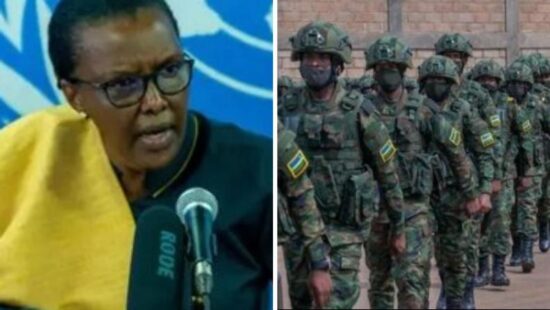
Casques bleus ou bras armé de Kigali ? Les ambiguïtés du déploiement rwandais en Centrafrique
Emmanuel Neretse - 2 novembre 2025Entre missions onusiennes et accords bilatéraux, plus de 5 000 soldats rwandais agissent en Centrafrique sous un double mandat opaque. À la veille du renouvellement du mandat…
Les plus populaires de cette catégorie

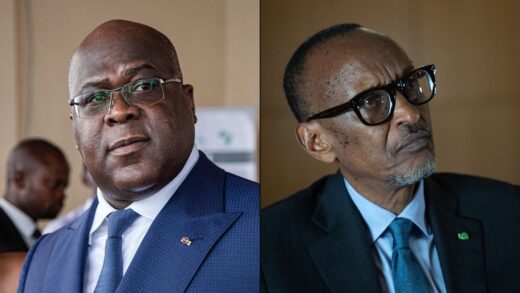
Hutu et Tutsi en R.D. Congo: la facture de la fracture à l’aune du passé
Mbumburwanze Shamba Nzapfakumunsi - 29 octobre 2025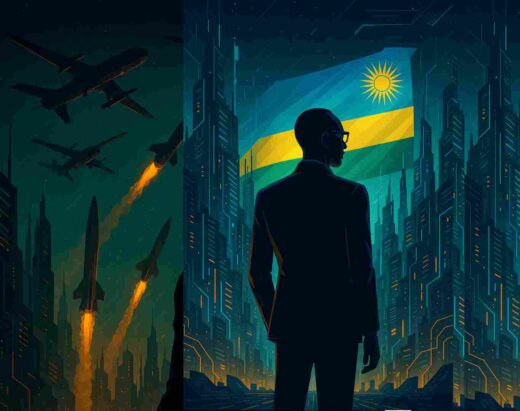
Après la RDC, le Burundi menacé : le spectre de Kagame plane sur Bujumbura
Emmanuel Neretse - 29 octobre 2025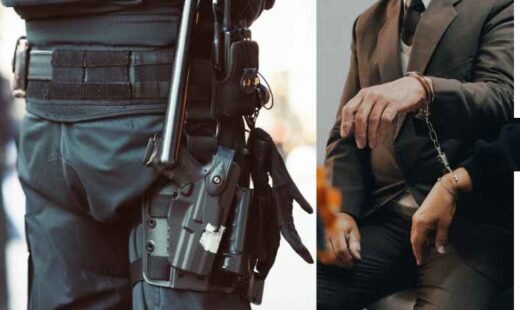



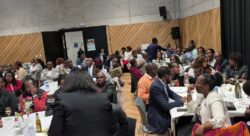
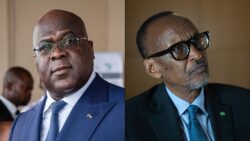







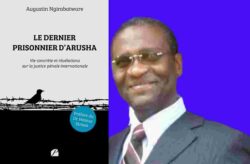


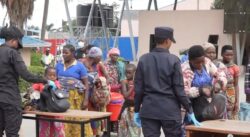



![Paul Kagame a fait main basse sur le commerce juteux de la friperie et sur la culture et la vente du cannabis [Série 8]](http://www.echosdafrique.com/wp-content/uploads/2021/07/cannabis-Kagme_Marijuana-250x161.jpg)
